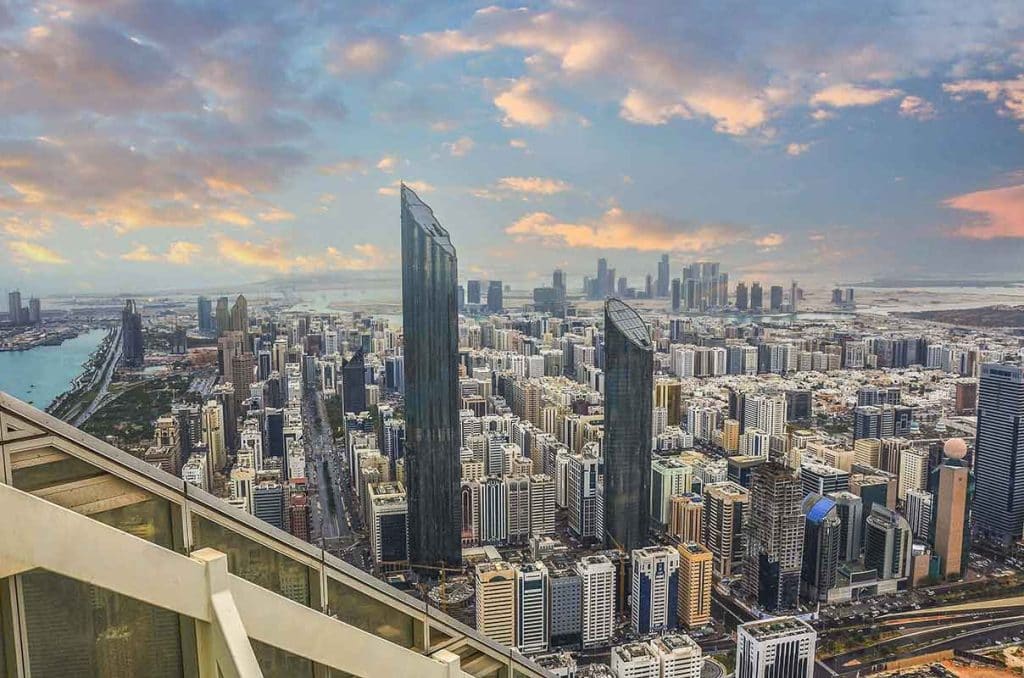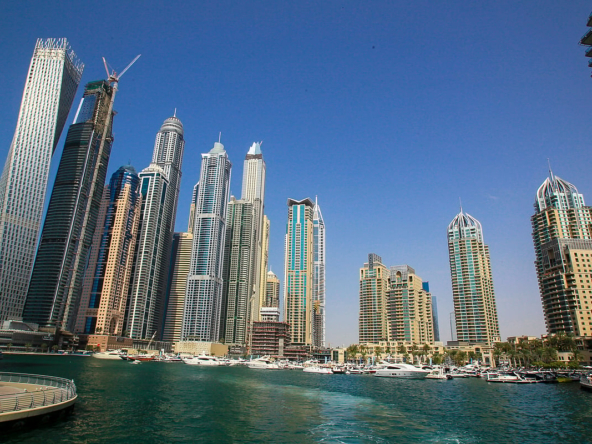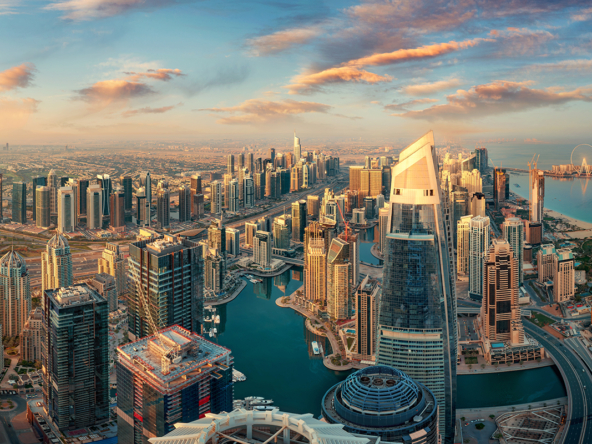CBRE report highlights strong start to the year for Dubai and Abu Dhabi real estate markets.
In the first quarter of 2025, Dubai and Abu Dhabi’s real estate markets demonstrated significant resilience and growth, despite global economic headwinds such as trade tensions and declining oil prices. CBRE Middle East’s UAE Real Estate Market Review for Q1 2025 highlights the robust performance of these markets, underpinned by the UAE’s diversified economy and strong international trade relationships.
Dubai’s Residential Market
Dubai’s residential sector experienced notable growth in Q1 2025. Rental rates for apartments increased by nearly 11%, while villas saw a 9% rise. This uptick is attributed to a combination of factors, including an active development pipeline, particularly in waterfront areas and affordable communities, and a slower pace of project deliveries, which tightened supply and pushed rental rates higher.
Transactional property values also saw a significant increase, rising by over 16% compared to the previous year. This reflects consistent quarter-on-quarter growth and underscores Dubai’s appeal as a high-value investment market.
In terms of transaction volumes, Dubai recorded approximately 43,000 residential transactions in Q1 2025, marking a 23% year-on-year increase. Off-plan transactions surged by 33%, while ready property transactions grew by nearly 5%. The total sales value reached AED 115 billion ($31.3 billion), with off-plan transactions accounting for AED 79 billion (69%) and ready properties comprising AED 36 billion (31%).

Abu Dhabi’s Residential Market
Abu Dhabi’s residential market also demonstrated positive momentum. While there was a slowdown in registered off-plan sales, the number of ready residential unit transactions increased by 10%, indicating growing demand from end-users and yield-focused investors. Price levels continued to rise, supported by sustained demand and limited supply.
Office Real Estate
The office market in both Dubai and Abu Dhabi experienced strong demand in Q1 2025. In Dubai, a chronic undersupply of quality office space in prime locations led to rising rental rates and occupancy levels, with average occupancy rates climbing to 94% and rental rates increasing by over 20% year-on-year. In Abu Dhabi, the office market thrived, fueled by a robust non-oil sector and government investments, resulting in average occupancy rates reaching 96% and office rental rates increasing by approximately 13% year-on-year.
Hospitality and Tourism
The UAE’s hospitality sector continued to grow positively in Q1 2025. Dubai’s hotel market saw a 4% increase in total visitors compared to the same quarter last year, with average occupancy rates slightly softening to 82% in year-to-date March terms. Abu Dhabi experienced a similar 4% increase in overnight visitors and significant growth in hotel performance metrics, including revenue per available room (RevPAR).
Retail and Industrial Real Estate
In the retail sector, Dubai’s pipeline remains limited in the short term, with approximately 250,000 sqm of gross leasable area (GLA) expected during 2025 and 2026 combined. Abu Dhabi’s retail pipeline is even lower, with around 150,000 sqm expected during the same period.
The industrial market witnessed growth driven by a favorable macroeconomic environment and strong sector fundamentals. Dubai’s warehousing rents surged by more than 20% year-on-year in Q1 2025, while Abu Dhabi experienced a 14% increase, primarily fueled by heightened demand in the Khalifa Economic Zones Abu Dhabi (KEZAD).
Regulatory Developments
In a significant regulatory development, Dubai’s Executive Council issued Resolution No. 11 of 2025, allowing free zone companies to operate in mainland locations with approval from the Dubai Department of Economy and Tourism (DET). This move supports economic growth, boosts competitiveness, and eases market entry, aligning with Dubai’s goal to double its economy to AED 32 trillion ($8.7 trillion) over the next decade. Free zone firms can now apply for onshore permits without losing their status, though the change excludes the Dubai International Financial Centre (DIFC).Government of Dubai Media Office+4maslaw.com+4Protocol Dubai+4
Conclusion
Despite global economic challenges, the UAE’s real estate markets in Dubai and Abu Dhabi have shown remarkable resilience and growth in Q1 2025. The combination of strong demand, limited supply, and supportive regulatory frameworks continues to attract investors and end-users alike, reinforcing the UAE’s position as a leading global real estate market.




